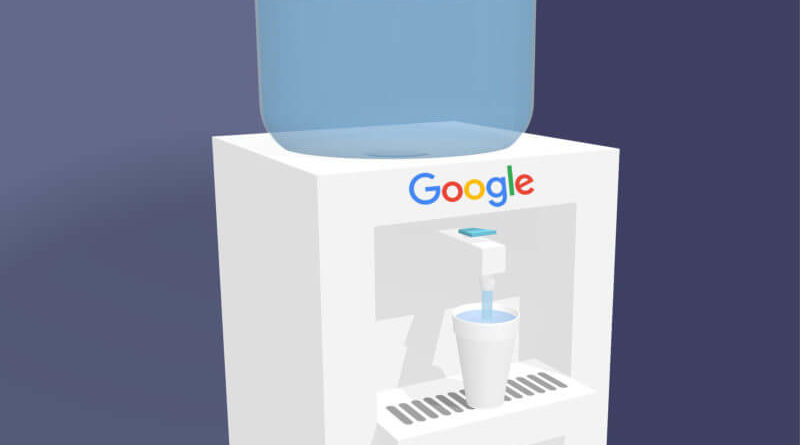Sarcasm aside, how strict PPC advertiser policies may actually benefit us
Contributor Andrew Goodman suggests we may not like the way Google manages the AdWords program, but anything less and the SERPs and advertising ecosystem would have imploded long ago.
Around the pay-per-click (PPC) water cooler, it’s been whispered that Google just might be out for its own financial self-interest. (Shhh! Don’t tell!)
That Google search is an utterly dominant and indispensable source of high-quality, high-intent paid search traffic makes it impossible to do anything but maximize our spend in this channel, of course. But many of us routinely do so with a suspicious mind. We worry, among other things, that the interface and the terminology associated with Google AdWords is “tricky,” all part of a droning narrative bent on driving up cost-per-click (CPC).
Frankly, that’s a given. But if we move past that, what insights might we gain?
Google Guvernment
Over the years, I’ve nicknamed Google “The Guvernment” (which was the name of a popular former nightclub in Toronto’s East Waterfront area) and dubbed them the “Sheriff” — for what sometimes appear to be quite detailed and heavy-handed policies impacting paying advertisers.
This may strike you as sarcastic (Sarcasm gets us through the day no less effectively than it did for Flo on Mel’s Diner), but if you lean in a bit, you’ll also detect a note of admiration.
Google is self-interested, but they’ve got the goods. And they’re uniquely conscientious in many ways. One holiday season, a Christmas gift from one of those “alternative” sources of PPC arrived early in the New Year at my home, sent from an address in upstate New York. Why was the package so slow? Well, for starters, it was ticking. You guessed it: a clock. My long-suffering colleague (we’ll call him D) didn’t miss a beat:
Every tick represents a fraudulent click.
Google’s nothing like that
Maybe it’s time to dial up the admiration level, or at least focus on understanding what makes Google so unusual and special as a self-imposed regulator of matters that it could easily remain agnostic about. In what appears to be a massive paradox, Google has made a business of not glibly taking money from borderline business models that carry too much baggage or threat of illegality.
That being said, Google has also had lapses in this area, including some high-profile cases in the pharmaceuticals field. To get into specifics, here’s a summary of some of the many ways Google regulates advertisers and the overall advertising environment.
- General consumer protection. It’s fortunate that most jurisdictions also have extensive legal frameworks for consumer protection. But if you’re in the advertising program, Google may simply ban you if it determines your business model is in a regulated field, illegal or just at a high risk of misleading or defrauding customers.
- Feed quality and feed contents. Google Shopping works best for consumers if Google has a well-maintained and truthful feed to work with. If a feed contains certain banned or restricted products or landing pages where, say, misleading health claims are made, the items may be disallowed. But make no mistake: The Sheriff (Google) dislikes some controversial products so strongly, even if they represent 0.01 percent of a reputable merchant’s feed, the entire feed may be disabled if months go by without problem areas being rectified. That could represent 40 percent of a large online retailer’s daily sales.
- User experience pet peeves. Google has never liked things like pop-ups and aggressive data collection (“squeeze pages”). These beliefs, arguably, are at once entirely scientific but also subjective. Google exercises its prerogative in terms of how much it will censure a website or advertiser for the presence of annoyances or privacy intrusions. And this spans the paid and organic sides. Recently, I heard from a very savvy creator of large content sites (with some monetization attached in the form of subscription products) that organic rank for many of their pages was strong when they avoided overt monetization, such as email address collection for the purposes of signing interested parties up for a free trial. Although the paid and organic sides of Google work independently in many ways, philosophies tend to converge around protection of user privacy and preventing users from bouncing or complaining due to annoying user experience (UX) practices.
- In Google’s eyes, nothing is less user-friendly than a slow-loading page — except, of course, for a slow-loading page on a site that isn’t particularly mobile-friendly. Arguably, in the AdWords program, Google doesn’t just leave advertisers to fail on their own (say, by losing money), but they also compound the pain for that advertiser by baking some of these signals into Quality Score. Why? Because (1) they don’t want users to go to such pages at all, ideally; and (2) they want to effect change. In popular policy studies parlance, this acts as a “nudge” to give folks an incentive to sit up and take notice of their poor mobile UX, for instance, to put the resources into this now, rather than “next year, for sure.”
- Of course, there is much more. Take ad copy alone. Google has long watched out for advertisers exploiting loopholes in ad copy creation. To provide a level playing field among advertisers, you can’t game the race for user attention by using all caps or otherwise creating “shouty” ads that degrade the overall experience of using a search engine. That’s a little like the condo board that won’t let you put a bedsheet (or even polka-dotted roller blinds) on your windows. Google is trying to prevent a tragedy-of-the-commons degradation of the search engine results page (SERP).
- Last-click attribution is an inaccurate way to measure the effectiveness of advertising. Google is encouraging us to move to more effective attribution models.
- Although ad extensions are far from a perfect landscape, they present an interesting way to improve how much objective information is included on the SERP. Google doesn’t have to show any given ad extension. They can tweak the algorithm to quietly favor and boost trust levels in certain types of advertisers, such as conventional, well-known companies if they so choose. To be sure, they can come up with precise ways of incentivizing advertisers to bid higher in order to trigger coveted ad extensions that just… won’t… show up… every… time. ( See above, under “suspicious minds.”)
Flaws, fits and fighting
Certainly, there remain many flaws in Google’s processes. Many of us are pained by ad disapprovals for one or two ads in an ad group that refer not to these ads, but to the business model of the entire site. If 99 percent of the ads in an account for an innocuous product line are approved and harmless, it’s impossible that virtually identical ads for the same company are ban-worthy.
Such all-too-common glitches give us fits. Google’s many false positives, one might be told, are the result of a “well, you can’t be too careful” attitude. But it appears that far too many policy violators and charlatans are permitted to open AdWords accounts in the first place. The system and the protocols are quite open (though far less so than with organic search), so the mentality of “always fighting spammers” seems to do a disservice to reputable advertisers and their significant non-laundered monies.
This is the keyword advertising ecosystem today, but it feels unstable and uncomfortable much of the time.
Do more they should
Yet I can’t think of any company other than Google that would have had the foresight to stay so far ahead of what often appear to be debatable issues of consumer protection and intra-advertiser fairness. They could do even more; perhaps they should.
And they’ve done this while diversifying and growing ad programs in a complex environment with literally millions of advertisers. Think of where we might be had Google not pushed for high standards of the types outlined above.
- Consumer trust in search engine results would be much lower.
- Consumer trust in advertisers would be much lower.
- The user’s daily experience would be slower.
- Advertisers would chase more perverse incentives; the average participant in the AdWords program would be more inclined to listen to snake-oil salesmen and tipsters offering insignificant ways to get an edge over more straight-arrow competitors. They would spend time and energy listening to trivial trickery rather than diving deep into data and getting to know clients; they would be stunting their marketing careers.
If anything, we should be expecting more, not less, scrutiny from Nanny Google. It may not always feel that it’s in our best interest, and sometimes it’s more self-serving than Google lets on.
But the alternative feels worse. Under a less firm hand, the SERPs and advertising ecosystem may well have imploded long ago. Nanny Google may be tough, but she lets us live in her house. And it’s a big, sunny house indeed.
In my next article, I’ll look farther out into the future of advertising. Nanny Google is exhausted from nearly two decades of chasing advertisers around. The tech titans have a major reset in mind, one that will relieve them of the chaos that has prevailed in the online information ecosystem in the past couple of decades.
Stay tuned.




